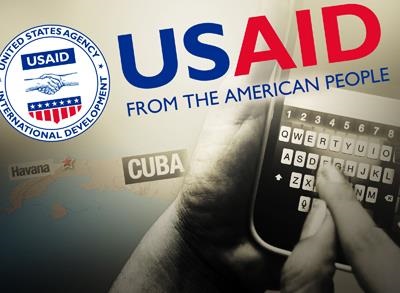For China the coronavirus is as much a political threat as it is a humanitarian one. President Xi Jinping, who spent almost a decade positing himself as China’s most powerful leader since Mao Zedong, is at risk of being held personally accountable should his government fail to effectively manage the crisis. This is significant because Xi’s careful centralization of authority has rendered him politically indispensable to the Chinese Communist Party (CCP), so that erosion of his personal prestige now has the potential to undermine the legitimacy of the government as a whole. In response to this, the Chinese government’s communications on Xi’s role in the epidemic have been erratic. On one hand, Xi is being positioned as the national leader of a beleaguered people, an image which amplifies the paternalistic authority that is the lifeblood of any autocrat. At the same time, Xi must be inoculated from criticism. He has been strangely absent from the crisis he is claimed to be taking responsibility for, causing Chinese citizens to ask: “Where is Xi?”
With this in mind, it’s important to understand the significance of how the language used to describe the virus has recently turned militaristic. This change in rhetoric was debuted by an article published on February 2nd by Xinhua, a state news outlet that often acts as the government’s mouthpiece. The article declared that containing the virus was a “people’s war” and it characterized the CCP as “bravely charging for the people’s interests.” Through this language, among other metaphors employed elsewhere, the coronavirus has been imbued with intelligence and cunning, making it a great predator against which China must unite. This differs greatly from the traditional rhetoric used in public health, which stresses calmness, individual agency, and frames disease in unsentimental, mechanical terms.
The gratuitous use of military metaphors is neither unprecedented nor surprising. The People’s Republic of China has a history of liberally employing them, often connecting modern day struggles to China’s first liberationist struggles. As a rhetorical trick, it shores up support for the state by tapping into vast reservoirs of nationalism and nostalgia, giving even banal conflicts or policy discussions an air of existential danger. Most importantly, by creating a clear chasm between ally and enemy, it externalizes internal conflict. If the coronavirus is imagined as an uncontrollable enemy combatant, rather than a controllable force of nature, the state becomes less culpable for exacerbating or mismanaging its harms. As a useful comparison, when North Korea experienced cataclysmic famines in the 1990s, Kim Jong-il responded by framing the crisis as a revolutionary struggle. By shifting focus outwards, towards a ghostly and ill-defined enemy, Kim blocked introspection on the domestic failures that made famine possible. Xi’s current strategy seems to function along the same idea, albeit both the rhetoric and the crisis are more moderate.
The idea of a war becomes more potent when it allows for the construction of a concrete enemy, which is why, as the coronavirus crisis continues to unfold, it will be important to watch how China portrays its relationships to other nations, particularly its geopolitical rivals. The day after Xinhua inaugurated this “people’s war,” news reports broke that China was blaming the US for its response to the virus, claiming that the United States’ behaviour had “unceasingly manufactured and spread fear.” Hua Chunying, China’s Foreign Ministry spokesman, argued that the US was being overaggressive, irrational, and was ignoring scientific advice. Hua pointed out that the US had been the first country to partially evacuate its embassy staff and the first to ban any foreign nationals who had recently been to China. He noted that this went against recommendations made by the World Health Organization (WHO), as the WHO believes that border closures and travel bans may accelerate the coronavirus’ spread by encouraging illicit border crossings. This messaging is troubling. While it is true that the US is a global leader in restricting national borders, its policies aren’t exceptional by any stretch. Within China itself, Hong Kong has been demanding that it be quarantined from the mainland. Mongolia and Russia have both almost entirely clamped down on their borders with China, a response which can be considered riskier than American border restrictions, given that, insofar as illicit travel is concerned, it is much easier to sneak across a land border than the Pacific Ocean. Much of the world seems caught up in internal debates on how much it ought to isolate itself from China, with public hysteria occasionally motivating bad policy. In this environment, why has China chosen to treat the US as exceptionally hostile?
This would likely be a non-issue had China not turned public health into a symbolic war, but now that it has, we ought to watch China carefully and be vigilant for signs that it will scapegoat the US in an attempt to protect its government from domestic criticism. While this may seem like a particularly suspicious response to some, it cannot be ignored that this would fall within China’s political playbook. Critically, the coronavirus is already being used to score political points. Russia, ever masterful in the art of disinformation, is using its network of media outlets to push a conspiracy that the coronavirus is a US-created bioweapon. In its previous incarnation as the Soviet Union, Russia similarly tried to discredit the US during the Cold War era by spreading a rumour that HIV/AIDS was a product of American government experiments. Nothing is sacred in the world of politics. The fear of disease, which ought to rally people together for collective benefit, becomes a weapon to discredit or vilify enemies.
For now, based on available information, China’s attitude towards the United States seems to be cordial enough. The harshest language used to attack the US appears to have been scrubbed from the ministerial transcripts, though they live on as quotes in news reports. Trump recently publicly praised Xi for his management of the crisis while committing $100 million in global aid to combat it. Reciprocally, Xi reassured Trump that a new trade deal, which could wind down the Sino-American trade war, will be reached. China’s war mindset is still flourishing, but for now its symbolic cannons seem to be aimed inwards. Local and provincial officials are taking the fall, drawing attention away from Beijing and Xi. Maybe that will be enough to absorb the rage of China’s citizens. Maybe not. We can only watch and take note of how China tinkers with the symbolism of its new “people’s war.”
Photo: Doctors in OR (unknown), Piron Guillaume via Unsplash
Disclaimer: Any views or opinions expressed in articles are solely those of the authors and do not necessarily represent the views of the NATO Association of Canada.




